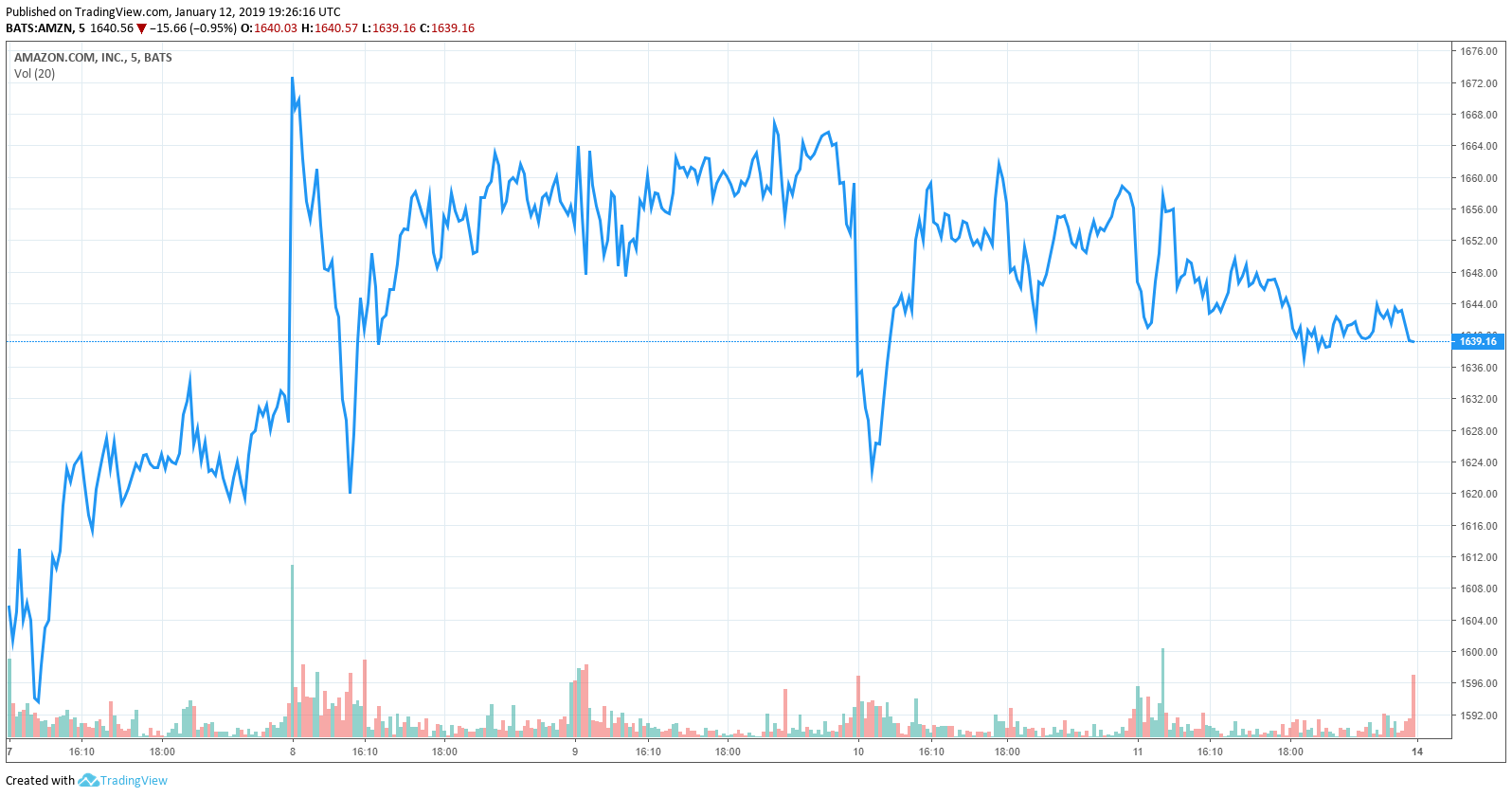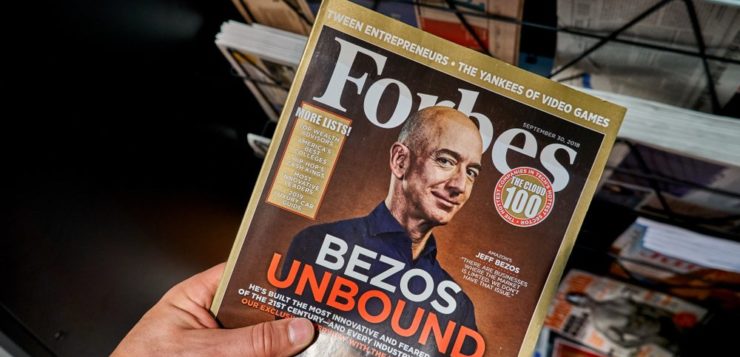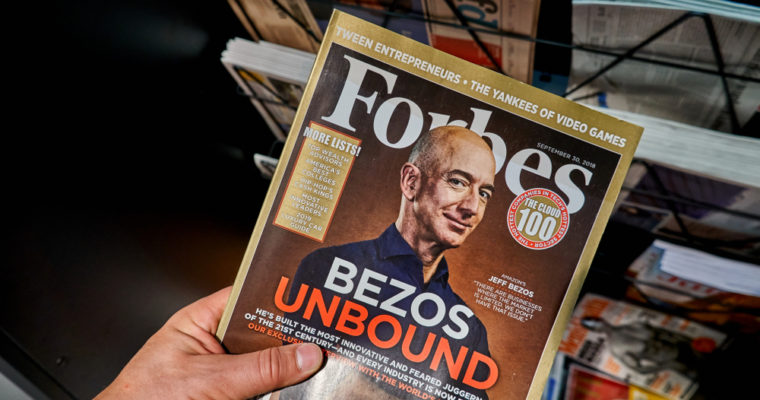News of Amazon chief Jeff Bezos and wife MacKenzie Bezos divorcing sparked questions about how the split could affect the world’s most valuable company’s stock.
While there were questions, there wasn’t panic. Investors are in wait-and-see mode. The news, which came Wednesday via a tweet from Jeff Bezos, barely moved Amazon’s share price. It closed Friday at $1,640.56.
What’s at Risk for Jeff Bezos and Wife MacKenzie?

The tech bellwether’s market cap is roughly $784 billion. It has about 477 million shares outstanding. Jeff Bezos owns almost 79 million of those shares. Those shares, as well as his other assets, put his net worth at roughly $137 billion.
Reportedly, he and his wife of 25 years have no prenuptial agreement. The way their assets are split depends on the state in which they file for divorce.
If it is Washington, where they live, their assets may not necessarily be split 50-50. The state’s law provides that everything a couple builds and accrues during their marriage is community property, as Business Insider noted in its report. It added that Washington’s courts attempt to split assets (and debts), fair and equitably.
There’s also the chance that the couple drafted a postnuptial agreement to avoid negatively affecting Amazon’s stock.
Stuart Slotnick, chairman of the matrimonial department of law firm Buchanan Ingersoll & Rooney, issued a statement on the matter, saying there is no reason that there should be a dispute over assets or money “because there is more than enough to be equitably distributed without either party seeing a change in their lives.”
Jeff Bezos will focus on control of his company and will likely elect to maintain the stock and voting rights in the Amazon shares over other assets. It’s unlikely there’s any risk to the company.
Why Amazon Investors Could Benefit from the Bezos Divorce
If the couple has to sell Amazon shares as part of the divorce, those shares will become part of Amazon’s free float, according to ZeroHedge. As a result, Amazon’s weight in indexes like the S&P 500 could increase.
Index fund managers would then have to buy more AMZN shares to account for the change. Indexes typically use a company’s available float – rather than the number of shares outstanding – to determine weighting.
Amazon is considered one of the most highly liquid stocks traded in the US. Therefore, it’s unlikely that Jeff Bezos selling shares would impact Amazon’s share price significantly, the publication further notes. It added that may not be the case for other stocks if index managers liquidate other holdings to buy Amazon.
Quoted in the report, David Dziekanski, a portfolio manager at Toroso Investments, said that index managers may need to sell “a little of everything else” to buy Amazon.
He concluded:
The equity markets will absorb any Amazon additional shares without much impact on price.
Featured Image from Shutterstock. Price Charts from TradingView.









